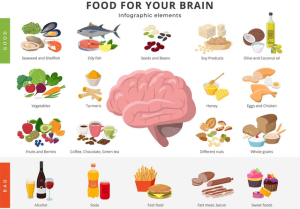Key Takeaways
Navigating postpartum depression stages:
- Denial to Acceptance: Outlines a journey from denying symptoms to seeking and accepting help.
- Emotional Spectrum: Highlights the range of emotions, from anger and bargaining to depression and acceptance.
- Support Importance: Stresses the critical role of support and professional care in recovery.
Check out our Psychiatry Services.
While it’s normal for most new mothers to experience ‘the baby blues’ after giving birth, some women have much more severe symptoms, which can indicate postpartum depression.
The baby blues is characterized by the presence of mood swings, crying spells, anxiety, and difficulty sleeping. The symptoms generally onset two to three days after giving birth and last up to two weeks. It occurs due to the body’s rapidly changing hormone levels after birth.
Postpartum depression, also called postnatal depression, is much more severe and long-lasting. Symptoms may even onset during pregnancy and continue after childbirth. This condition is called peripartum depression. An extreme form of this mood disorder called postpartum psychosis rarely occurs but can require immediate medical attention.
Symptoms
Symptoms of postpartum depression include:
- Depressed mood or dramatic mood swings
- Excessive crying
- Difficulty bonding with the new baby
- Withdrawal from family and loved ones
- Changes in eating patterns
- Insomnia or excessive sleeping
- Extreme fatigue
- Loss of interest or pleasure in activities
- Feelings of being an inadequate parent
- Feelings of hopelessness, worthlessness, shame, guilt, or inadequacy
- Inability to think, focus, or make decisions
- Restlessness
- Severe anxiety and/or panic attacks
- Thoughts of harming yourself or the baby
- Recurring thoughts of suicide or death
Unfortunately, the symptoms of postpartum depression last for months or longer in some cases. Postpartum psychosis is a severe form of postpartum depression that includes feelings of confusion and paranoia, often accompanied by hallucinations, sleep problems, and bursts of energy. Without treatment, there is a risk that the mother may harm herself or the child.
Stages of Postpartum Depression
Similar to the ‘5 Stages of Grief’, there are stages of postpartum depression. These stages include:
Denial
No new mother wants to experience a major mental illness during what is supposed to be one of the happiest times of their life. Therefore, it’s not surprising that the first stage of postpartum depression is characterized by the new mother doubting their feelings. During this period, the woman often tries to tell herself that it’s just the baby blues, feelings of exhaustion, or a temporary feeling that will wear off soon.
Anger
After the realization that it is not a temporary phase, many new mothers are angry. It’s natural to feel cheated that you aren’t able to enjoy this beautiful time bonding with your new baby. In addition, it can be easy to become angry about needing a mental health provider, especially if your medication interferes with breastfeeding. This is another instance where a new mother suffering from postpartum depression is at a disadvantage, which can also lead to feelings of guilt.
Bargaining
The bargaining stage is often when the woman will tell herself that things will be ok if certain actions are taken, such as getting more sleep or exercise, praying more, or taking vitamins. At this point, the new mother may still feel her condition is caused by her actions, which is untrue. But it becomes easier to indulge in these negative thoughts when suffering from postpartum depression.
Depression
While all stages are technically considered a form of major depression, there is often a period when it is especially pronounced. The mother may feel her family is better off without her and that she is a terrible mother. This period may also include stronger feelings of despair and hopelessness.
Acceptance
At this stage, many women realize that something isn’t normal or that they cannot continue to ignore the symptoms without seeking assistance from a healthcare provider. This time is generally when most women reach out for help or support from family members. They accept the fact that they have postpartum depression, which is an illness that may require taking medication and working with a mental health professional. But there is also often the realization that the condition will eventually resolve with support and treatment.
Postpartum Depression Risk Factors
Postpartum depression is a severe condition that can negatively impact the mother’s health and her ability to care for the baby. Therefore, it’s a good idea also to understand the risk factors for developing postpartum depression, which include:
- Having a history of depression or bipolar disorder
- Experiencing postpartum depression after a previous pregnancy
- Having family members with depression or other mood disorders
- External stressors, such as pregnancy complications, illness, financial issues, or job loss
- Having a baby that requires special needs or has health problems
- Having multiple babies, such as twins or triplets
- Experiencing difficulty with breastfeeding
- Having relationship problems with your partner
- A weak support system
- The pregnancy was unplanned or unwanted.
The reality is that postpartum depression is a serious illness that can impact the mother’s ability to care for the child or even increase the risk of suicide. Discussing postpartum depression with your primary care provider is an excellent way to receive more health information about the risk of this condition. Your clinician may even want you to complete depression screening throughout the pregnancy and after delivery, especially if you are at an elevated risk for developing postpartum depression. This type of screening can dramatically reduce the amount of time you spend in each of the stages of postpartum depression and help you achieve a complete recovery faster.



